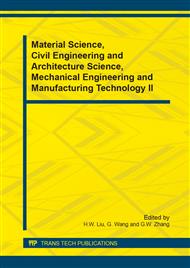p.1933
p.1937
p.1941
p.1945
p.1949
p.1953
p.1958
p.1962
p.1967
Study on the Performance of CCSDS Standard Convolution Codes through Simulation
Abstract:
the (15, 1/6) standard convolution codes of CCSDS is powerful and is often used for satellite communication, and it is also the fundamental of designing channel code for deep space communication. After analyzing the channel encoding and decoding solutions in previous spacecrafts, the performance of CCSDS (15, 1/6) standard convolution codes is researched. The encoding efficiency is get by simulating (15, 1/6) standard convolution codes’ encoding system in C translation environment. The decoding performance and encoding gain are get by simulating (15, 1/6) standard convolution codes’ decoding system in BPSK modulation, AGWN channel and Viterbi decoding scheme.
Info:
Periodical:
Pages:
1949-1952
Citation:
Online since:
September 2014
Authors:
Price:
Сopyright:
© 2014 Trans Tech Publications Ltd. All Rights Reserved
Share:
Citation:


